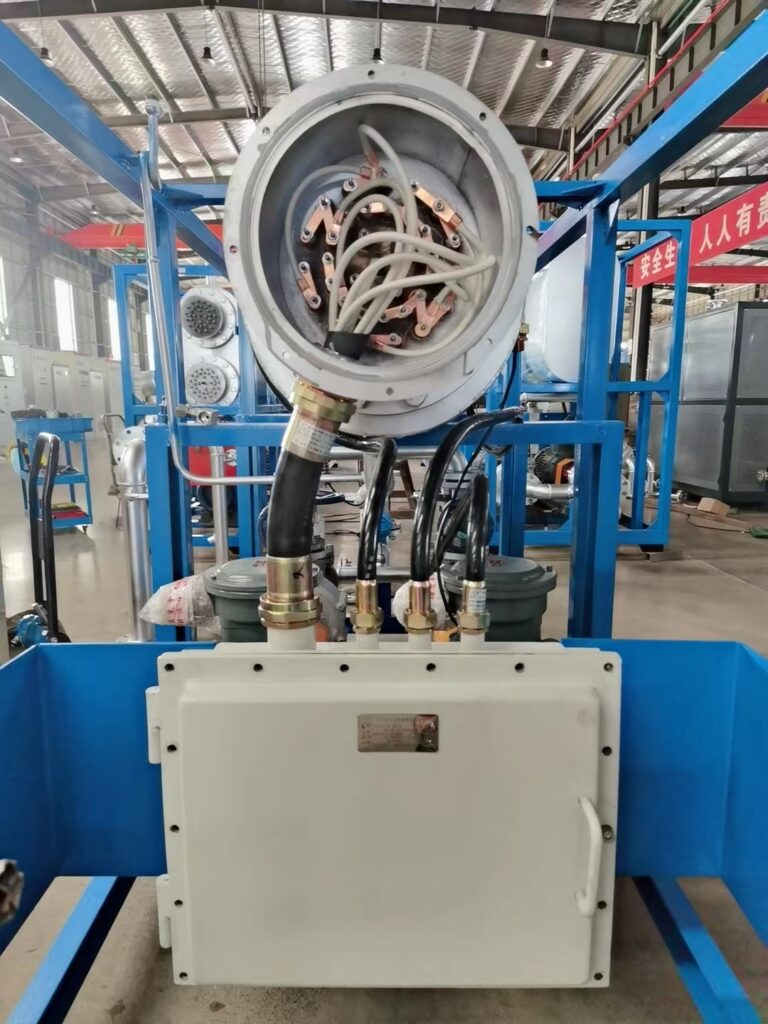As a kind of high-efficiency heating equipment, heat transfer oil boiler is widely used in many industrial fields that require stable high temperature. It achieves the transfer of heat energy through the circulating heating of heat carrier oil, and has some unique advantages over traditional boilers, but it also has certain limitations. Next, we will analyse the advantages and disadvantages of heat transfer oil boilers in detail.

Advantages of heat transfer oil boilers
- high efficiency and energy saving
The thermal oil boiler adopts thermal oil as the medium to be heated at high temperature, which can effectively improve the heat conduction efficiency. Compared with the traditional water steam boiler, thermal oil has a higher thermal conductivity, and under the same heat source conditions, the thermal oil boiler has a higher thermal efficiency, which can significantly reduce energy consumption. - Precise temperature control
Thermal oil boilers can achieve more accurate temperature control. As the hot oil in the heating process can be evenly distributed, to avoid the impact of temperature fluctuations on equipment and product quality, to ensure the stability of the temperature in the industrial production process. - High security
Compared to steam boilers, thermal oil boilers operate at a lower pressure and are therefore safer. The high-temperature thermal oil circulates at a much lower pressure than steam pressure, reducing the risk of explosion, and the thermal oil itself does not generate excessive pressure loads. - Wide range of applications
Heat transfer oil boilers can be used in a variety of industrial fields, such as chemical, petroleum, food processing, plastics processing and so on. These industries usually require a high temperature and stable heating environment, and thermal oil boilers can meet these special requirements and provide a reliable heat source. - Low maintenance costs
Thermal oil boilers are simpler and have fewer common failures. Since the working medium is thermal oil, it avoids the scaling problems that can occur with conventional boilers, thus reducing the frequency of maintenance and cleaning and lowering long-term operating costs.
Disadvantages of heat transfer oil boilers
- Higher initial investment
The initial investment in thermal oil boilers is higher compared to conventional boilers. This is mainly due to the fact that the design and manufacturing process is more complex and the cost of the required thermal oil, equipment and accessories is relatively expensive. As a result, although the operating costs are lower, the initial investment takes longer to recover. - Hot oil ageing problem
Heat transfer oils may deteriorate with increased use. Aging heat oil will not only affect the thermal efficiency of the boiler, but may also cause damage to the equipment, so it needs to be replaced periodically, increasing the workload and cost of maintenance. - Higher equipment requirements
Heat transfer oil boilers need to strictly control the temperature and flow of oil in the process of use, otherwise it may lead to overheating and aging problems of hot oil. This requires the user in the use of the process must pay great attention to the operating status of the equipment to ensure the normal operation of the system. - environmental pollution
Although thermal oil boilers do not produce exhaust gases or waste water during operation, hot oil may pollute the environment if it leaks. Therefore, it is necessary to ensure that the equipment is well sealed and checked for leakage during regular maintenance.
Our company can non-standard custom products, click the menu bar to contact us to customise, you can also refer to the first!product pageAppreciate our company's products oh!
Recommended Reading:
